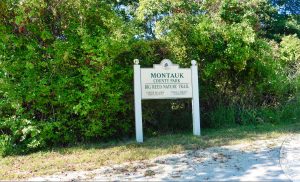 A recent news story in the New York Post raises important issues regarding the effects of the coronavirus pandemic on evictions in New York State. According to the report, an “Intragram influencer” named Marisa Hochberg owes at least $14,000.00 in past due rent on her summer rental in Montauk, and has refused to vacate the premises, even though her lease expired several months ago.
A recent news story in the New York Post raises important issues regarding the effects of the coronavirus pandemic on evictions in New York State. According to the report, an “Intragram influencer” named Marisa Hochberg owes at least $14,000.00 in past due rent on her summer rental in Montauk, and has refused to vacate the premises, even though her lease expired several months ago.
In ordinary times, an eviction action would be brought by the attorneys for the homeowners in the local landlord-tenant Court, seeking to evict the tenant. In the Hochberg case, the tenant could be the subject of either a holdover action, or a non-payment action. First, as her lease expired by its terms, this makes her a month-to-month tenant subject to termination on proper notice (holdover action). Second, as she has failed to pay rent due, this also allows the possibility of a non-payment proceeding being brought against her.
However, as our readers are aware, these are not ordinary times. Not all landlord-tenant courts, which are local in nature, are scheduling and hearing cases on a regular basis, due to COVID concerns. Before attempting to file a case in a local landlord-tenant Court, experienced counsel should contact the Court directly to ensure that they are accepting and scheduling new cases.
What if the local landlord-tenant court is not allowing new cases to be filed? Another option, which has been used in the Hamptons case under discussion, is to file a lawsuit in the Supreme Court of the county in which the property is located. The Supreme Court action can seek past due rent, as well as a warrant of eviction, just as would a matter filed in landlord-tenant Court. However, Supreme Court actions are not “expedited proceedings,” as landlord-tenant proceedings generally are.
Local landlord-tenant courts are established to hear cases on an expedited basis, due to the relatively short time frames involved in many tenancies. Cases filed in Supreme Court usually take a longer time period to resolve, as a defendant who is served with a lawsuit is allowed at least twenty days in which to file an answer to the complaint. In addition, Supreme Court cases allow formal information-gathering processes such as written discovery (questions demanding information on the case) as well as depositions (questioning the parties under oath prior to trial). The discovery process in Supreme Court may take several months, where a landlord-tenant proceeding has limited discovery allowed. As a result, scheduling a Supreme Court case for trial may take months. In addition, the current pandemic has caused some Supreme Court judges to postpone in-person trials.
The next issue relates to the actual eviction. Even if the landlord is successful in having a Court grant a warrant of eviction, New York State currently has a moratorium on all evictions due to COVID. This means that all warrants of eviction are stayed at least until January 1, 2021. Whether this moratorium will be extended is a strong possibility, and has become at least partly a political issue. Therefore, physically evicting a tenant, even if the tenant has lost their Court case, must wait until at least early 2021. In addition, the individuals who must perform the actual evictions (City Marshals and Sheriffs) will undoubtedly have a large backlog of evictions to perform once the moratorium is finally lifted. A recent New York Times article also relates the stories of tenants who are taking advantage of the eviction moratorium to avoid paying their rent, as they know that cannot be evicted for some time.
Our firm is working with the current conditions to negotiate the best results for our clients, be they landlords or tenants. We strongly recommend hiring experienced counsel who can work with all parties to resolve cases, even if the Court system is currently not working at full effectiveness.
 New York Real Estate Lawyers Blog
New York Real Estate Lawyers Blog

